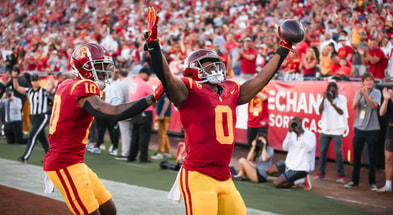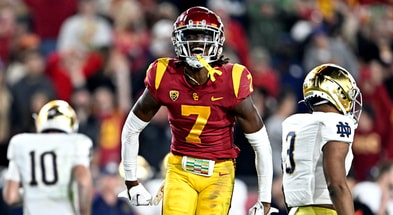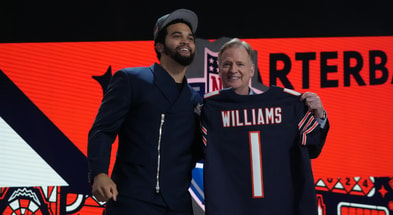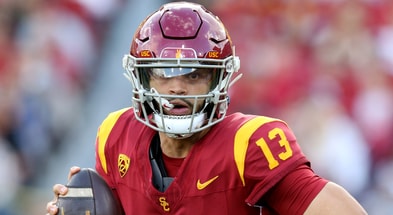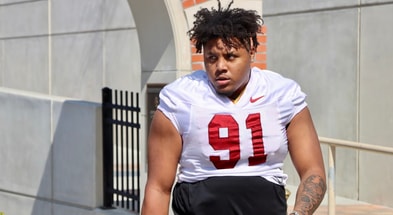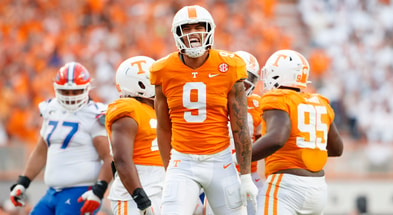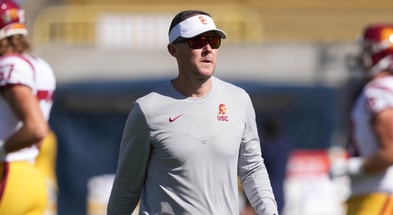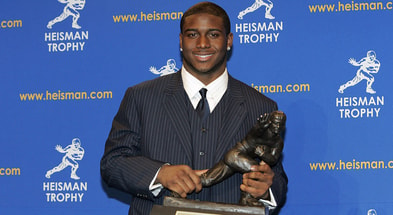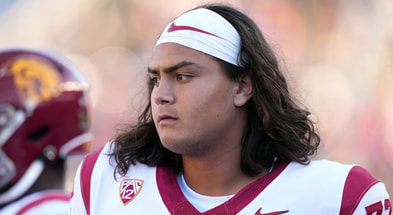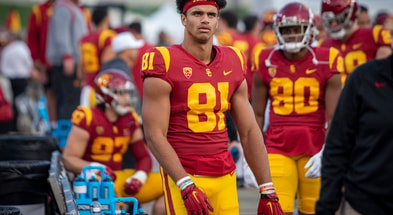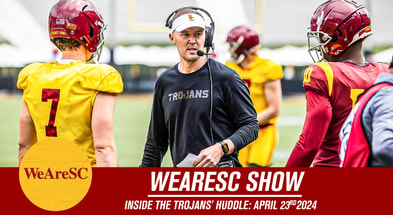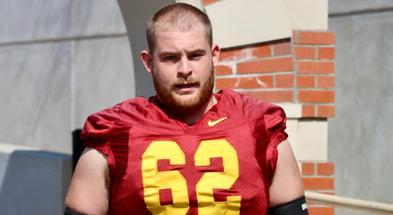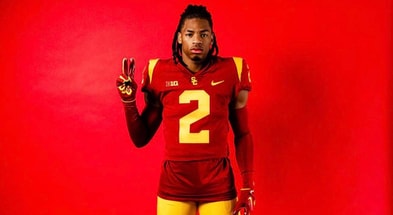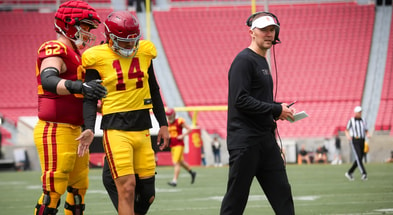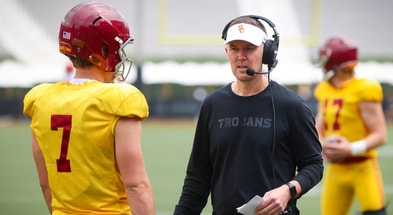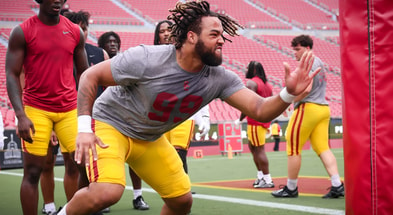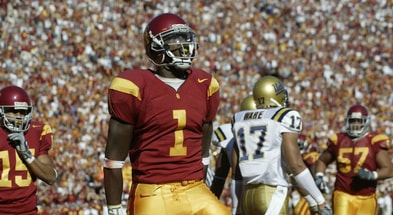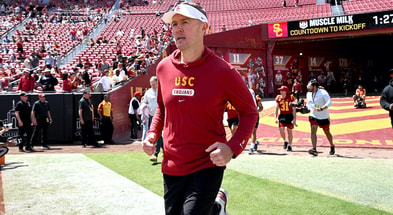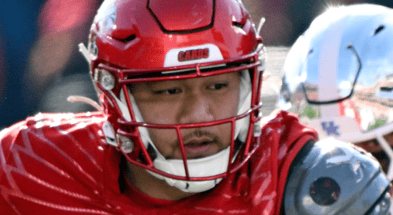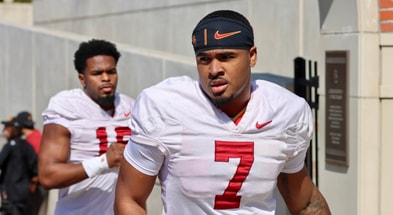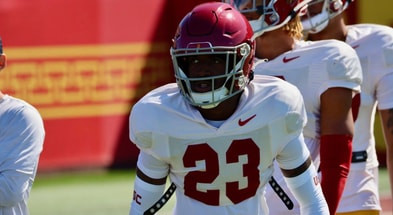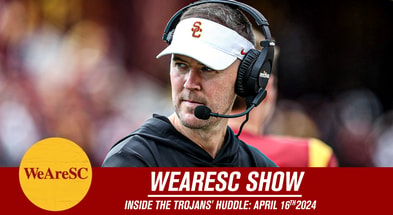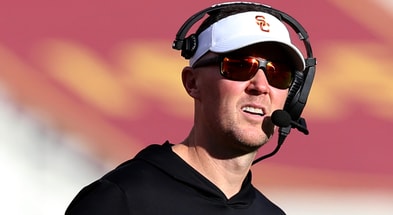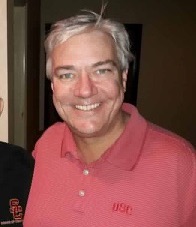Musings from Arledge: The NCAA and Reggie Bush
The NCAA never fails to disappoint. Just when you thought the organization might be tamed from multiple emasculations by the federal courts, Rick Pitino, and an SEC and Big 10 advisory committee that clearly is a first step in a move away form NCAA governance, the “fair-minded folks” in Indianapolis remind us that they’ve still got it.
Reggie Bush wants his Heisman back. The Heisman Trust says, “Talk to the NCAA. If they change their mind, we will, too.” So Reggie appeals the NCAA ruling—the ruling, mind you, that resulted in a multimillion-dollar payout from the NCAA to former USC assistant coach Todd McNair because the whole process was a joke. Remember, this is where the NCAA pinned a violation on USC by refusing to allow USC to cross examine their star witness—a convicted felon with an axe to grind—whom the NCAA staff pushed and prodded to say harmful things about the involvement of the USC coaching staff. And then when the convicted felon still didn’t do a good enough job railroading USC in his bogus testimony, the NCAA committee intentionally misstated and misconstrued the evidence in order to take down Pete Carroll’s program anyway. That’s the decision I’m talking about.
So Reggie Bush appeals that decision, probably believing that in the day of gargantuan “NIL” deals and de facto free agency, where every major player is openly making money as opposed to Reggie’s day when they were making money but everybody had to lie about it, that the NCAA might be a bit sheepish about standing behind a decision that everybody now knows was a giant sack of manure.
Nope.
With one foot in the grave, the NCAA reminds us of its essential character and shows, once again, why somebody needs to finally drive a stake through its heart.
The NCAA denied Reggie’ appeal because, they said, Reggie lacked standing. Reggie, they explained, was “never officially charged by the NCAA enforcement staff” in the 2010 case. Because the sanctions were “an institutional penalty … [Reggie does] not have standing to seek reconsideration.”
Standing is a legal term that essentially means that only those people directly affected by an act have the right to make a legal claim challenging that act. A stranger to act or a legal ruling has no right to mount a challenge. I can’t appeal the Depp-Heard ruling, even if I thought it was wrong.
Now I don’t want to sound ungrateful. I guess I should be happy. For years I’ve been asking the NCAA to act like an impartial tribunal and apply fair rules and due-process considerations instead of consistently running a kangaroo court overseen by self-interested crooks and morons. The fact that the NCAA finally seems to be taking an interest in recognizable legal concepts should be a time of rejoicing. All the children in Whoville should be singing right now.
Except for this: the ruling was, once again, a sack of manure.
The NCAA denied Reggie’s appeal on the grounds that it was an institutional ruling, not an individual ruling, so only the institution can appeal.
It’s bad enough that the NCAA still wants to stand behind its ruling after the courts have concluded that the fix was in and the NCAA paid millions to Todd McNair. Had USC’s former brain trust —the Pat ‘n Max Show—taken the matter to court themselves, the ruling would have been overturned long ago.
But to deny Reggie’s appeal of this unfair ruling on standing grounds? Absurd. See, there’s the thing: while it may be true that the original (and now publicly disgraced) decision was a decision against the institution, the NCAA also made particular findings and penalties directed at Reggie Bush as an individual. Specifically, the NCAA ordered USC to disassociate itself from Reggie Bush permanently. (A later rule change allowed USC to end the disassociation in 2020.)
Thus, Reggie Bush is not a bystander who was only incidentally affected by the ruling. It’s not like I filed the appeal on my behalf. Reggie was the individual that the NCAA said could not have his records or achievements recognized by the university and could not be associated with the university. That’s right, the NCAA overlords concluded that Reggie could not have his jersey or trophies in Heritage Hall, could not have his records recognized in USC’s official publications, could not run out of the tunnel at the Coliseum or appear at USC events. There’s nothing direct or incidental about that; the NCAA penalties directly targeted and directly affected Reggie Bush.
Standing? Absurd. Roger Taney would embarrassed to sign off on this standing ruling.
This decision was cloaked in legal terms, but it was one more example of the NCAA digging in its heels and fighting with all its might against the momentum moving in the direction of fairness so it could, once again, and maybe for the last time, take an action that is unjust and in no way contributes to the NCAA’s alleged mission.
The NCAA’s real mission, of course, is to ensure that the schools keep all of the billions of dollars generated by major-college sports. But their pretend mission is to protect the sport and keep a level playing field. So how would that mission have been harmed by granting Reggie the ability to get his trophy back? He’s still out of eligibility; he won’t be running out of the tunnel against LSU. (Sadly.) It doesn’t give USC more scholarships. It doesn’t change that the NCAA sanctions devastated the top program in college football on bogus grounds; that was already done and can’t be changed now. A decision in Reggie’s favor would have done nothing to harm the NCAA’s mission. It would not have injured anybody else. It would not have put any colleges at a competitive disadvantage. It would have benefitted Reggie Bush; that’s all. Which is exactly why Reggie so clearly has standing to challenge the ruling.
So Reggie still doesn’t have his trophy. And all of the other Heisman winners—the vast, vast majority of whom received some level of impermissible benefits during their playing days—still have theirs and everybody—the Heisman winners, the Heisman Trust, the media, the fans, and, yes, even the clueless NCAA—knows that outcome is ridiculous.
The NCAA barely has a pulse these days. And even that’s too much. It’s far past time to end that institution.
